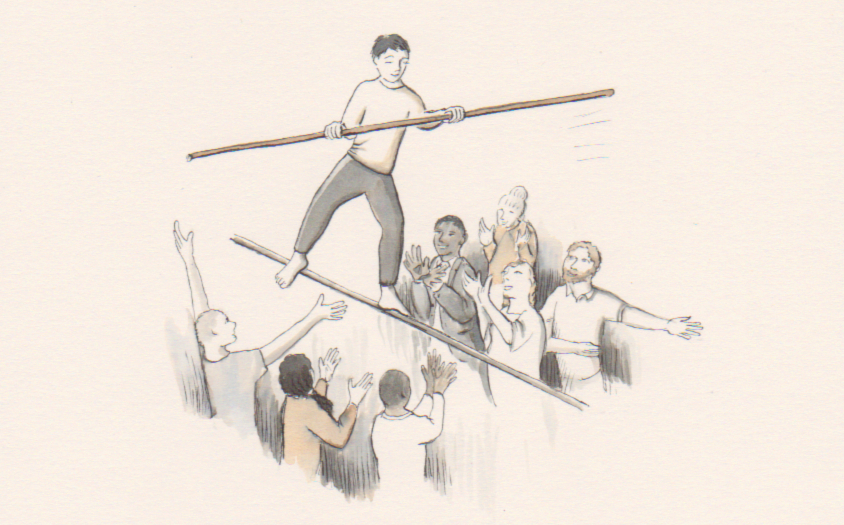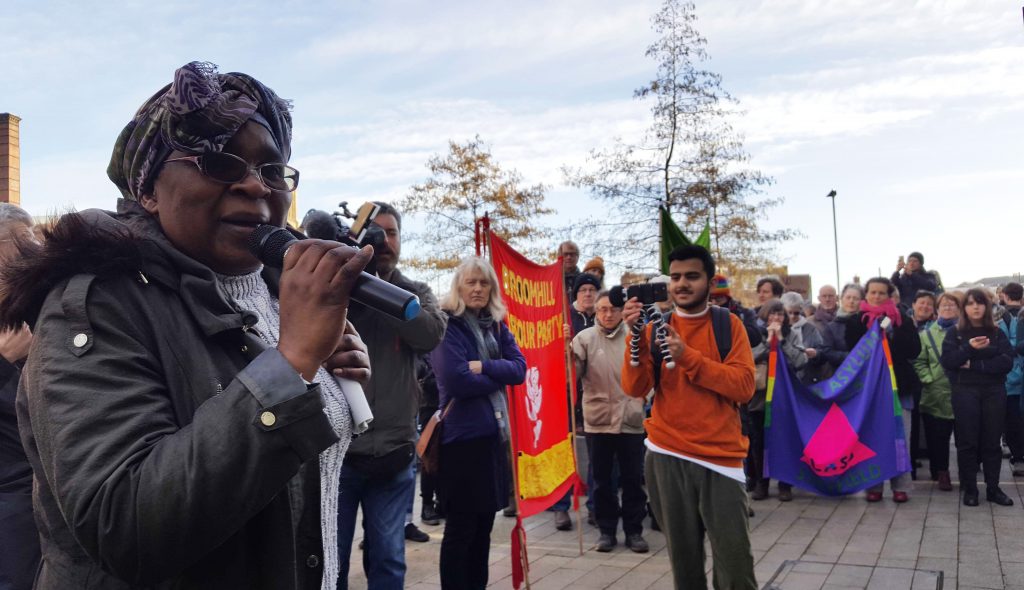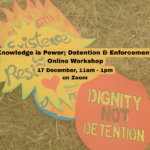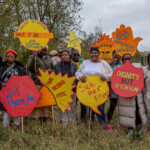
Last week, Ken Macharia’s team-mates from Bristol Bisons, the LGBTQ+ rugby team for which he played, accompanied him when he went to report at the Home Office.
Ken had just got the news that his fresh claim for asylum had been refused by the Home Office, and he and his friends were very worried that this reporting event could result in him being detained, and the Home Office attempting to forcibly remove him from the UK.
Reporting at the Home Office is always a stressful experience, as we wrote about here.
In the context of a recent refusal, and facing persecution and harm if removed from the UK (as Ken is, as a gay man originally from Kenya), these worries are exponentially increased.
But Ken isn’t go through these battles alone. He has community, and they really showed up for him last week.
Take a look at this incredible video (with sound on!).
https://twitter.com/MinnieStephC4/status/1136583212237512704
Ken wasn’t detained, and the fight for justice continues (you can support his legal fund here).
Similarly inspiring scenes could be witnessed in Sheffield in February, when supporters turned up at Vulcan House at 9am on a Tuesday morning to support Marian Machekanyanga as she reported to the Home Office.

In the context of Zimbabwean embassy officials interrogating Zimbabweans in the UK who have sought asylum, facilitated by the UK Home Office,
“Marian and others Zimbabwean asylum seekers asked for support. So South Yorkshire Migration and Asylum Action Group (SYMAAG) organised a demonstration outside Vulcan House, at the same time Marian was inside reporting to the Home Office, fearing that she might never come out of the front door. The response was big, even by Sheffield standards. 200 people chanted “Marian belongs in Sheffield” “No deportations to Zimbabwe” while security staff at the Home Office reporting centre looked out sheepishly. Marian was inside for just a few minutes and came out of the front door to cheers”.
No-one should go through the asylum and immigration system alone.
Our work is all about bringing people together, sharing knowledge, so that more people take action for in their own legal case, or in solidarity with someone else.
Ken and Marian’s examples are relatively high-profile, but practical solidarity is needed every day, in quiet ways and loud, to survive and succeed in navigating the legal system.
This can include helping someone prepare for the gruelling asylum interview, and sitting with someone after they have their asylum interview, sometimes just to help make them feel a bit better, sometimes with a very focused aim of talking about what went wrong in the interview so they can share this with a lawyer and submit a statement to the Home Office.
This can mean very practical things like making sure someone knows where their interview with the Home Office is, and how to get there. Or community childcare if someone has an appeal hearing. Responding to such basic needs, like food parcels and sanitary items for people who are destitute, hosting people who are homeless.
This could be going along to an appeal hearing, to be a friendly face for someone who has their appeal. Appeal hearings are open to the public unless an anonymity directive is in place, meaning the hearing will be held in private because of the particularly sensitive nature of the case.
And this could be “signing support” – systems for people who have to regularly report to the Home Office, for taking action if someone is detained at one of these routine appointments. Not everyone is part of an active community like Ken and Marian, but signing support can help anyone.
Sometimes these actions are taken by those also seeking the right to remain, sometimes by those with more secure immigration status or British citizenship. All types of skills and experience are needed, and sometimes it’s just the being there that matters.
Read about these solidarity actions and more in the Right to Remain Toolkit.
















Discussion: